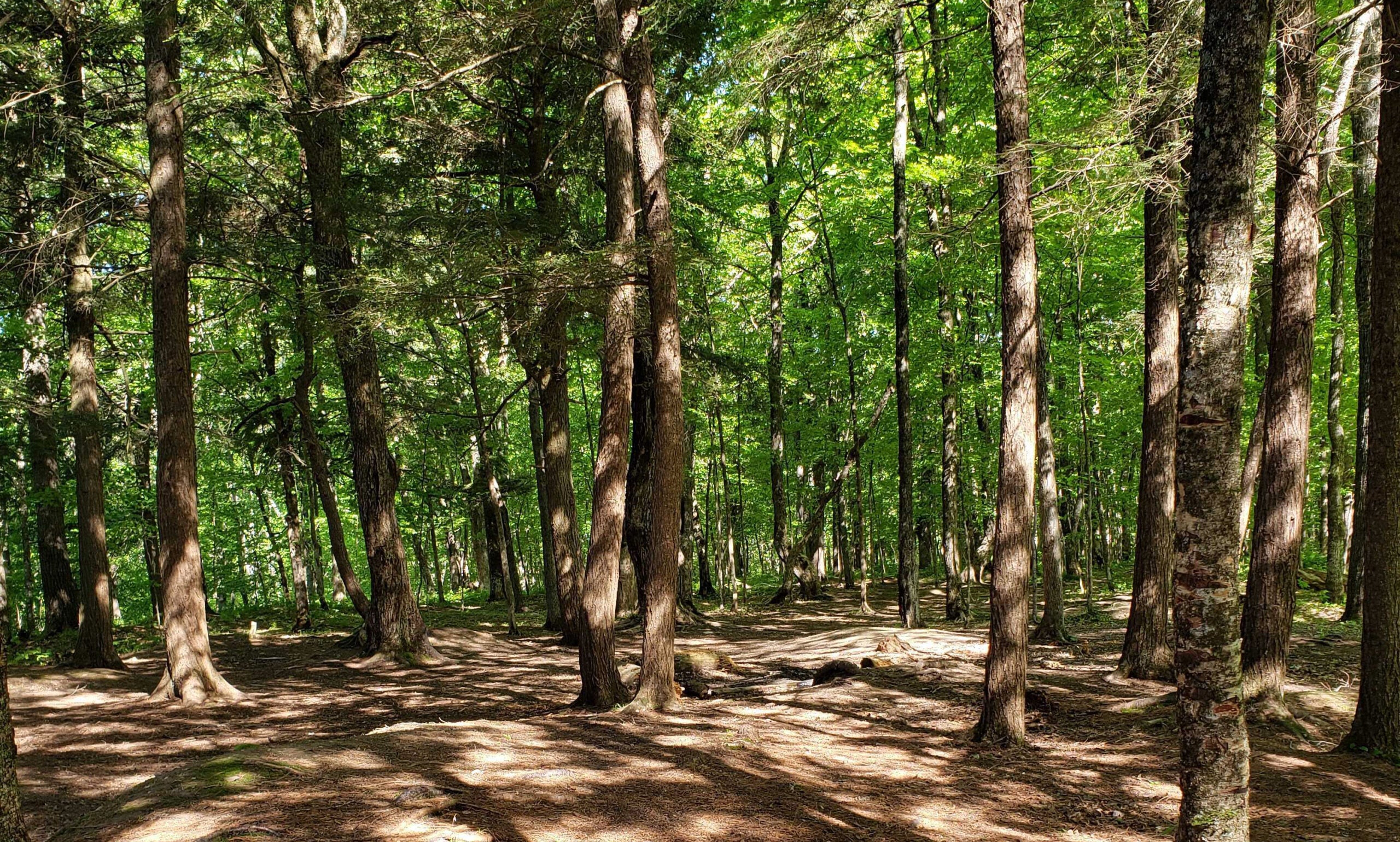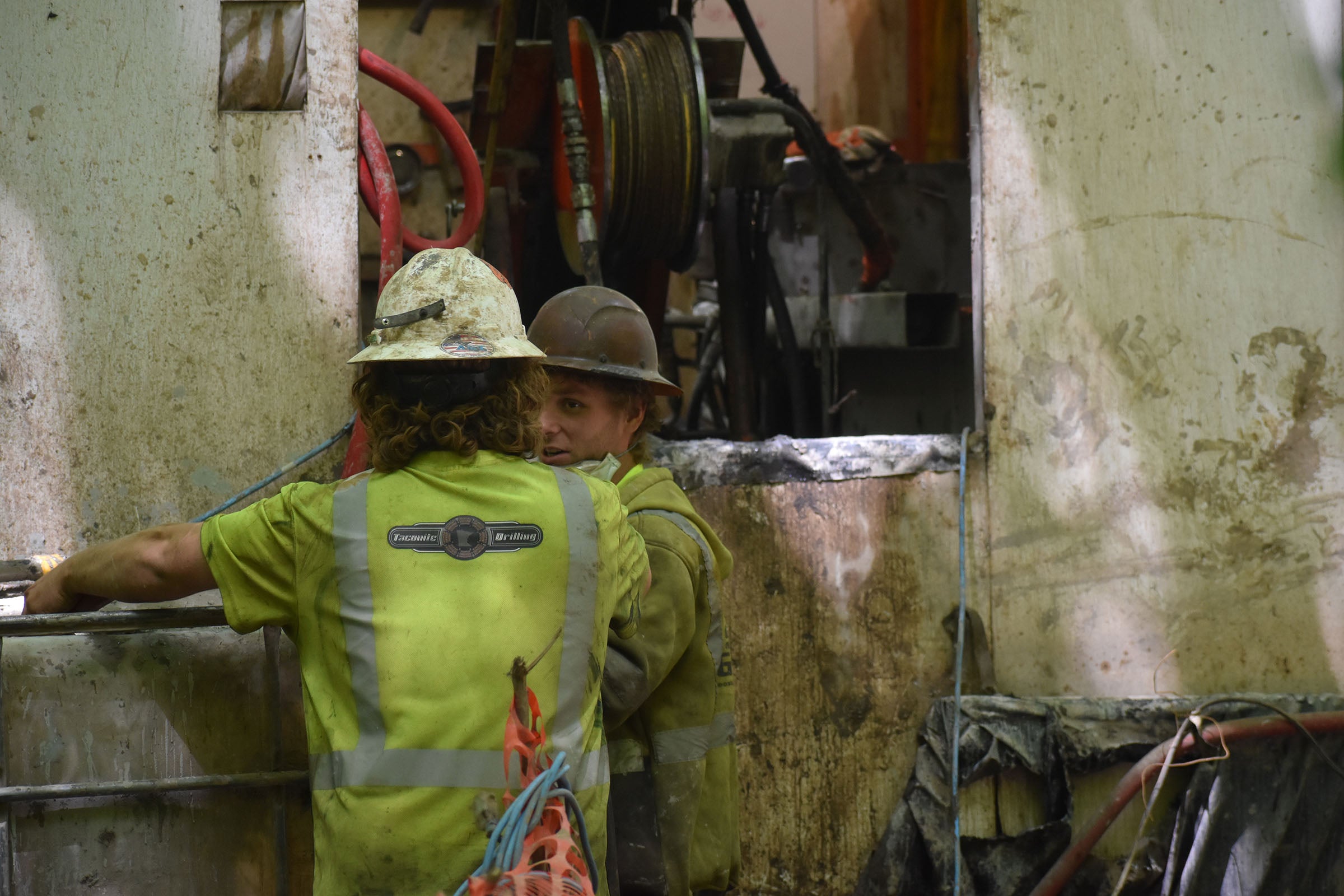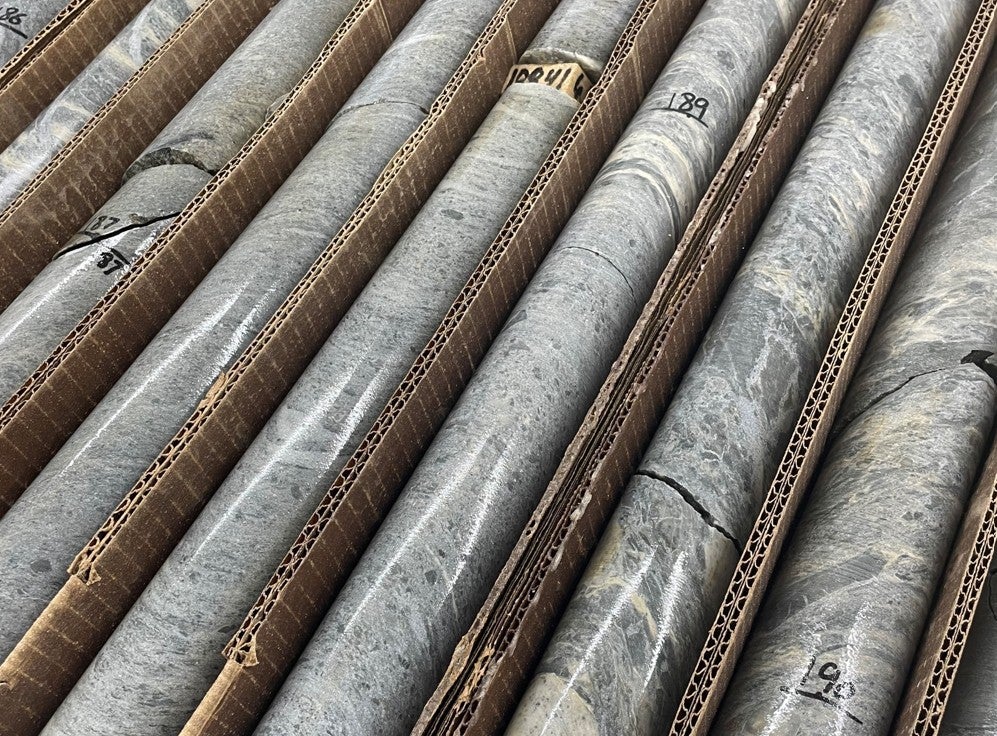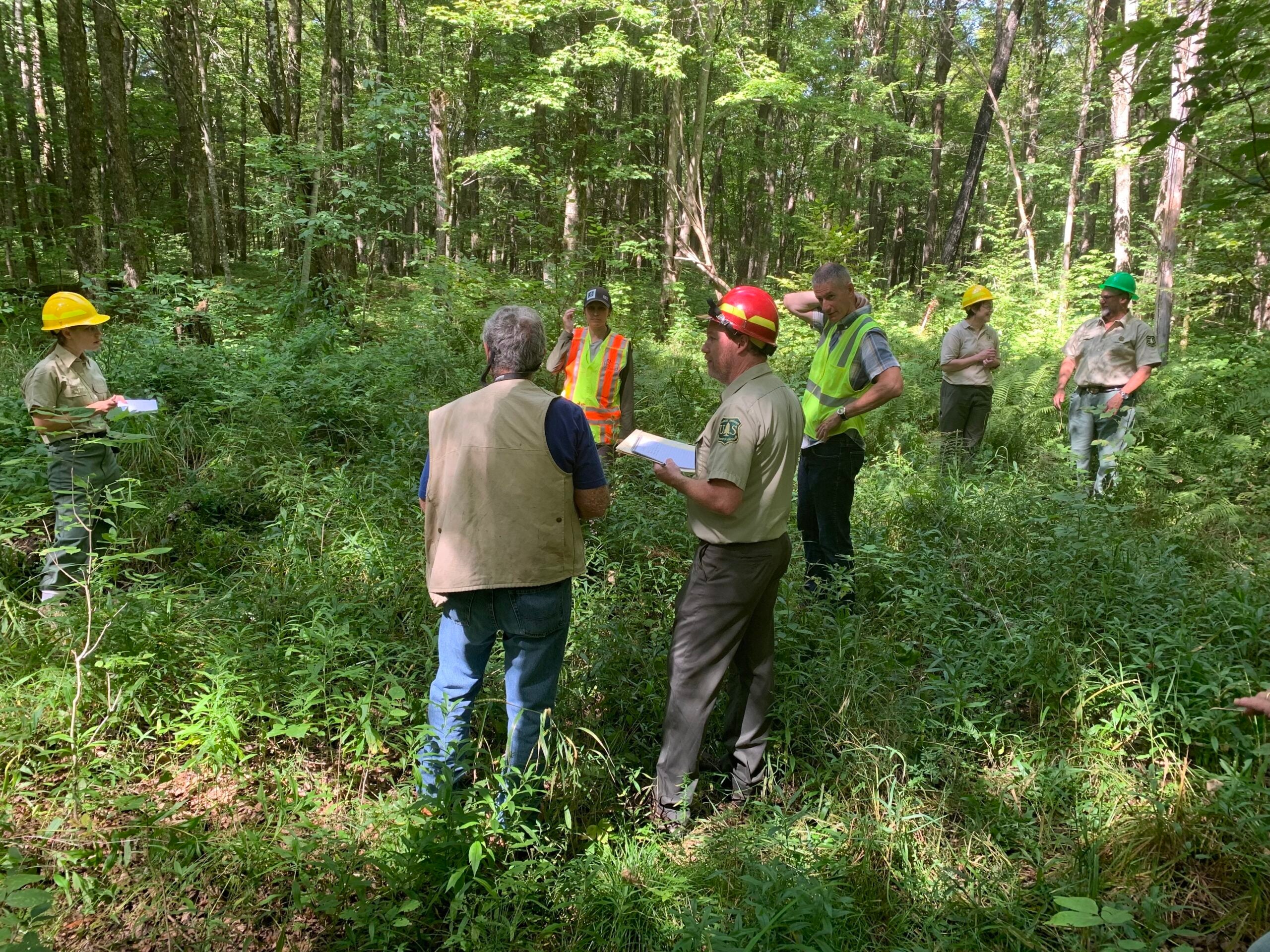Toronto-based Aquila Resources is planning to sell its interests in copper and gold deposits in northern Wisconsin so it can focus on building the Back Forty mine near the Menominee River. The move could bring northern Wisconsin one step closer to sulfide mining after lawmakers eliminated a decades-old moratorium several years ago.
Aquila announced Tuesday that it intends to sell its interests in the Bend and Reef mineral deposits to a newly formed private company — often dubbed a Newco — for roughly $5.8 million. If approved, Aquila would receive nearly $2.5 million in cash along with an ownership share in the company worth about $3.3 million.
“We are very pleased to have reached an agreement in principle to monetize our non-core Wisconsin assets,” said Guy Le Bel, president and CEO of Aquila in a news release. “The Transaction provides Aquila with immediate cash without diluting Aquila shareholders. It also provides us with meaningful upside exposure to an exciting new exploration focused company with the resources to explore the Bend and Reef properties as Aquila focuses on the development of Back Forty.”
News with a little more humanity
WPR’s “Wisconsin Today” newsletter keeps you connected to the state you love without feeling overwhelmed. No paywall. No agenda. No corporate filter.
Dave Carew, an Aquila spokesperson, said no further details would be released Tuesday. He expected additional details about the buyer would become available once the parties reach a definitive agreement within the next 45 days.
Carew did say the buyer intends to raise additional money for exploratory drilling at the Bend and Reef sites, as well as publicly list its company on a Canadian stock exchange.
Aquila obtained a license from the Wisconsin Department of Natural Resources in March to conduct metallic mineral exploration in the state. The Canadian mining company plans to renew that license before it expires at the end of the month, said Carew. State and federal regulators have cautioned that any potential mine is far from a reality, noting that such exploration activity takes place roughly once every decade.
Aquila first explored the Bend and Reef mineral deposits in Taylor and Marathon counties around a decade ago. The Reef deposit in Marathon County contains a gold deposit that’s estimated to contain 454,000 tons of high-grade gold reserves while the Bend deposit in Taylor County contains 4.23 million tons of mostly copper and gold, according to the DNR.
In December, a company official said it was waiting for regulatory certainty before moving ahead with plans for those sites. At the time, the DNR was weighing new rules governing sulfide mining in the state.
The Natural Resources Board signed off on new regulations in January that were part of implementing a 2017 law that repealed the state’s moratorium on sulfide mines. The moratorium required companies that wanted to mine sulfide ores, such as copper and gold, to prove other mines operated and were closed for 10 years without causing pollution.
Industry officials and Republican lawmakers have hoped the law would open the door to a billion dollar industry, including Scott Manley, executive vice president of government relations for Wisconsin Manufacturers & Commerce.
“Any sort of mining or prospecting up there I think would result in a tremendous amount of investment, a tremendous amount of jobs — really well-paying, family-supporting jobs,” said Manley.
Environmental groups, Wisconsin tribes, and those living near mineral deposits fear sulfide mining will impact water quality or quantity. Ron James, a resident of Langlade County, is adamantly opposed to mining copper and gold in Taylor and Marathon counties.
“That is not an appropriate place to dig big giant holes in the earth that require continuous nonstop pumping and dewatering, which will create cones of depressions on nearby water systems for the residents of the area where the deposit is,” said James.
State regulators have approved only one nonferrous or sulfide mine in more than four decades, which was the 80-acre Flambeau Mine that operated for several years until 1997. The mine served as a catalyst for the moratorium that was repealed through the 2017 law.
Ben Callan, the DNR’s integration services section chief, said Aquila hasn’t provided the agency with information on its plans.
“They haven’t given us a plan regarding an exploration proposal,” said Callan. “If a new company came in, they would have to obtain a license from the department and then submit a notice of intent that we would review and determine whether or not there are other resources issues or permits required for any proposed activities.”
Callan said no other applications have been submitted for exploratory drilling of the copper and gold deposits. Aquila hasn’t been in communications with the agency since it received the exploration license.
Once the DNR receives an application, it has 10 days to provide a response or request additional information. Companies are required to include an application fee, a minimum bond of $5,000, certification of insurance and the company’s most recent annual report on file with the U.S. Securities and Exchange Commission.
Aquila has also obtained an exploration license from the federal Bureau of Land Management to evaluate the Bend deposit, which lies within the Chequamegon-Nicolet National Forest, according to the DNR.
The proposed sale of the Reef and Bend deposits will allow the Toronto-based mining company to devote its resources to the Back Forty mine on the Michigan-Wisconsin border. Aquila wants to mine primarily gold and zinc from a 750-foot deep open pit that would come within 150 feet of the Menominee River.
The Back Forty mine has faced multiple legal challenges to a mining permit and wetlands permit that were awarded for the project. Those permits have either been denied or called into question in recent court rulings.
Aquila has announced it won’t pursue challenges to those decisions. Instead, the company plans to conduct a feasibility study of the project with a goal of avoiding direct impacts to wetlands. Aquila’s CEO Le Bel has previously said the company is committed to designing a mine that would operate safely and protect the environment.
Aquila expects the Back Forty mine would create 350 construction jobs and around 240 permanent jobs if the mine is built. The project is anticipated to provide $140 million to the state of Michigan and local communities over the life of the mine.
The Menominee tribe has opposed Aquila’s plans to mine near the Menominee River, which is considered sacred to Menominee people. The tribe maintains the mine threatens the river and its historic and cultural resources, including burial mounds. Gunnar Peters, the tribe’s chairman, has said the area should remain protected from mining.
Wisconsin Public Radio, © Copyright 2025, Board of Regents of the University of Wisconsin System and Wisconsin Educational Communications Board.





